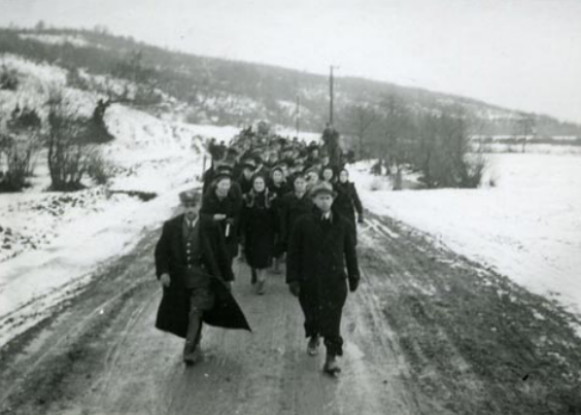Subcarpathian Ruthenia
Subcarpathian Ruthenia (Pidkarpatska Rus’). The historical-geographic name used in the 19th and early 20th centuries to designate the territory of Transcarpathian Ukraine; also called Hungarian Ruthenia. Later it became the official name of the eastern and central parts of Transcarpathia, which was a separate province of Czechoslovakia (CSR) in 1920–38. The Treaty of Saint-Germain (1919), which joined Transcarpathia to the CSR, described ‘the Ruthenian territory south of the Carpathian Mountains’ as Subcarpathian Ruthenia, and that was the name used in the CSR constitution at the end of 1919. From 1920 individual laws and administrative orders used the name Subcarpathian Ruthenia, and from 1928 the name Subcarpathian-Ruthenian Land (Podkarpatoruská Zem) was also in use. Although Subcarpathian Ruthenia, with the capital in Uzhhorod, was officially supposed to be autonomous, the promised territorial and national autonomy was realized only in 1938, when the new autonomous government of the land changed the name to Carpatho-Ukraine. Subcarpathian Ruthenia did not include western Transcarpathia (Ukrainian parts of eastern Slovakia, ie, the Prešov region) or the narrow Ukrainian ethnographic territory near the border in the Romanian Maramureş region.
BIBLIOGRAPHY
Pahiriia, Oleksandr. Karpats'ka Ukraïna v dokumentakh Druhoï Chekho-Slovats'koï Respubliky, 2 vols (Lviv 2020)
Vasyl Markus
[This article originally appeared in the Encyclopedia of Ukraine, vol. 5 (1993).]

.jpg)